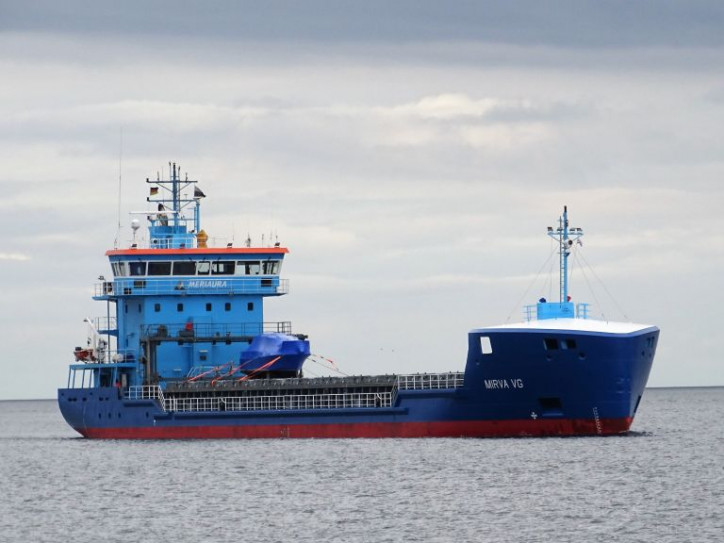At the end of last year, Meriaura Group reported on research collaboration with the Finnish Transport Safety Agency TRAFI for reducing ship-generated waste. The purpose of the study was to assess what measures could be taken by the shipowner and the ships for delivering all of the ship-generated waste to the port reception facilities, i.e. to reach a “zero-waste” level on board.

During last autumn, five vessels from Meriaura Group reported and specified the amount of ship-generated waste, and how and where the waste was removed from the ship. Now the Company reports what measures Meriaura has taken and will take based on the results of the study.
The international MARPOL Convention regulates which waste fractions must be landed in ports and which types of waste can be discharged into the sea. In the Baltic Sea, the emission standards and limits are already partly tighter than in many other sea areas. But, even on the Baltic Sea, it is still allowed to remove certain types of waste to the sea at a distance of 12 nautical miles (22.2 km) from the nearest land. These include food waste, crushed and disinfected or untreated grey and black waters and bilge water under certain conditions.
Recently, there has been a lot of talk about the air emissions of shipping, which Meriaura Group has tried to reduce by increasing the use of bio-oil in Company’s fleet, using low-sulphur fuel and reducing the overall fuel consumption, for example by combining cargos and with accurate route planning. The media in Finland has featured also how for example cruise ships can still discharge sewage into the sea. Compared to cruise ships, cargo ships’ discharges per vessel are significantly lower because there are no passengers and only few crew members. But there are hundreds of cargo carriers sailing in the Baltic Sea. Although agriculture is said to be the main cause of eutrophication in the Baltic Sea, these ship emissions are not insignificant. In order to improve the state of the Baltic Sea, nothing should be discharged there.
Meriaura Group has taken steps to improve the situation. During the spring, the Company has prepared a project to minimize the environmental footprint of its fleet. The ships have sorted the recyclable waste already for a long time, as MARPOL requires. The problem has been that all ports have not been able to pick up sorted waste, and sometimes the recyclable waste sorted onboard is dumped into the same container. The ability of ports to handle and receive different waste fractions is in key position in minimizing the environmental strain of ships.
The goal of Meriaura Group is to go far beyond the minimum requirement set by MARPOL. Our Waste Reduction Project “MERI” comprises 4 sub-areas:
- Minimizing of waste at source
- Enhancing Onboard Process & operation to reduce waste
- Recycling of waste materials is amplified
- Improving handling of residual waste products
“In the first phase of the project, we collect ideas from our ships for practical implementation of the above-mentioned issues. We have instructed our ships that after 1st of July 2019, all grey and black waters must be left in the ports and discharges into the sea are not allowed, not even at a distance of 12 nautical miles from ashore. Although many ships have waste water treatment and purification equipment, we think it is important for the whole to put an end to all kinds of emissions into the sea.
In the next phase of our project, next autumn, we will strive to create standards for all our fleet’s practices aimed at reducing consumption, improving recycling and reuse of materials, minimizing food waste, and guiding the on-board meals to a more environmentally and climate-friendly direction, that also is healthier.
A remarkable improvement can be achieved by the crew’s effort and activity, and high level of service at the ports. Although this is a “jump away from the comfort zone,” we believe that a positive attitude and enthusiasm to do things better will spread and engage people, and the opportunity to personally influence on the state of the Baltic Sea will motivate.
We hope that the ports in the Baltic Sea, where facilities to receive waste and recycled materials are still in need of improvement, are willing to take up the challenge. The goal of our project is to make the VG-Shipping fleet the least waste produing fleet by the end of 2020. Our broader goal is to make this a standard for the whole industry. Legislation on the discharges to the sea and MARPOL also need tightening.
We we report about the progress of the project later in the autumn. Before that, it’s time to enjoy the summer. On behalf of the whole Meriaura Group, I wish all our customers and other partners a relaxing Midsummer and holiday season!”
Source: Meriaura